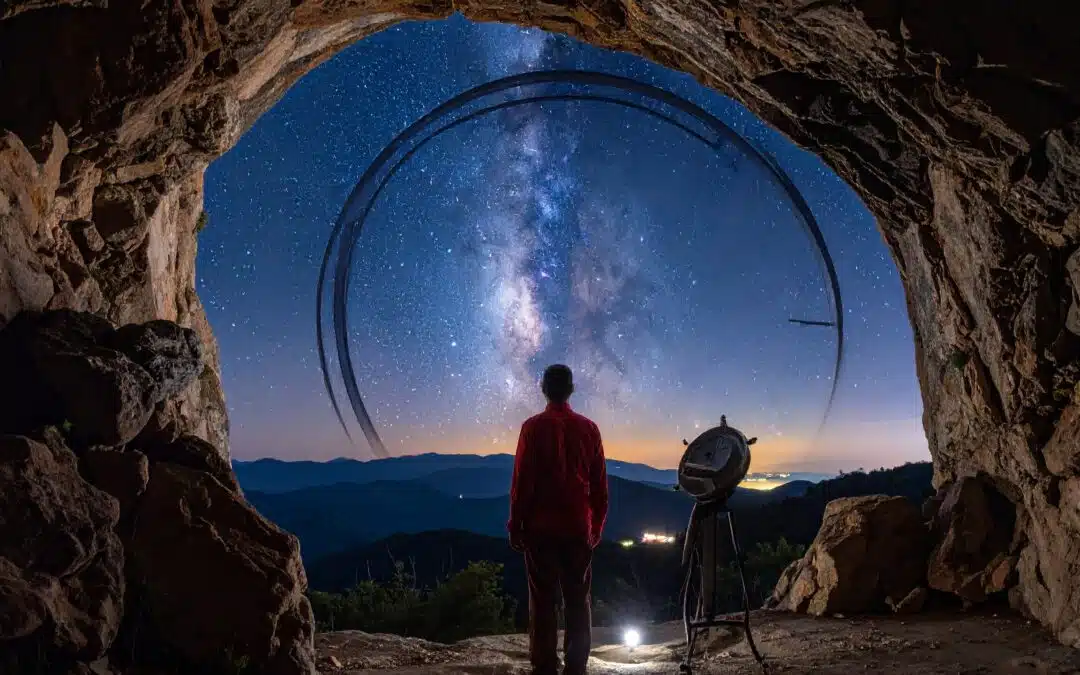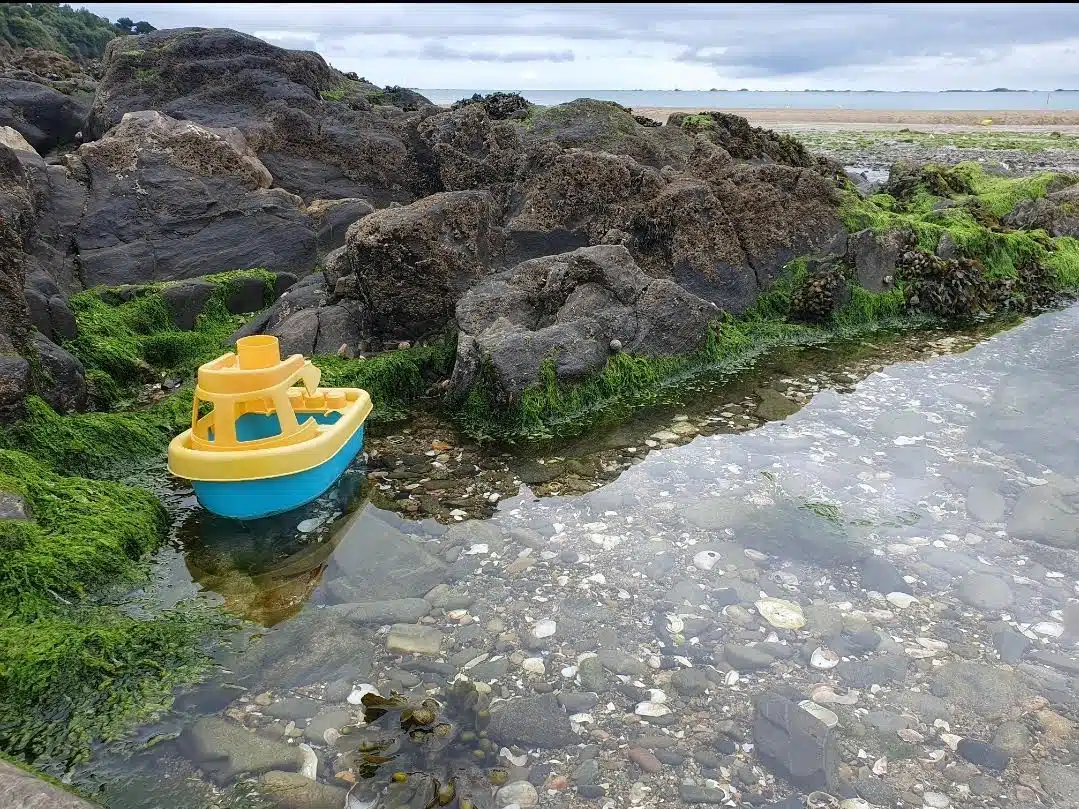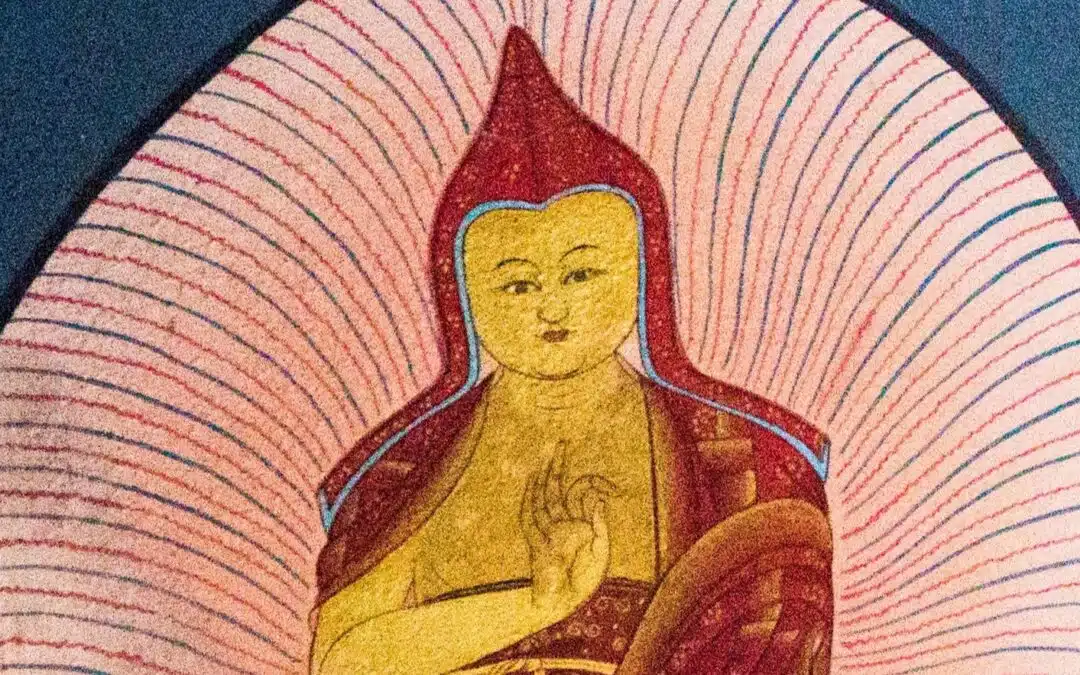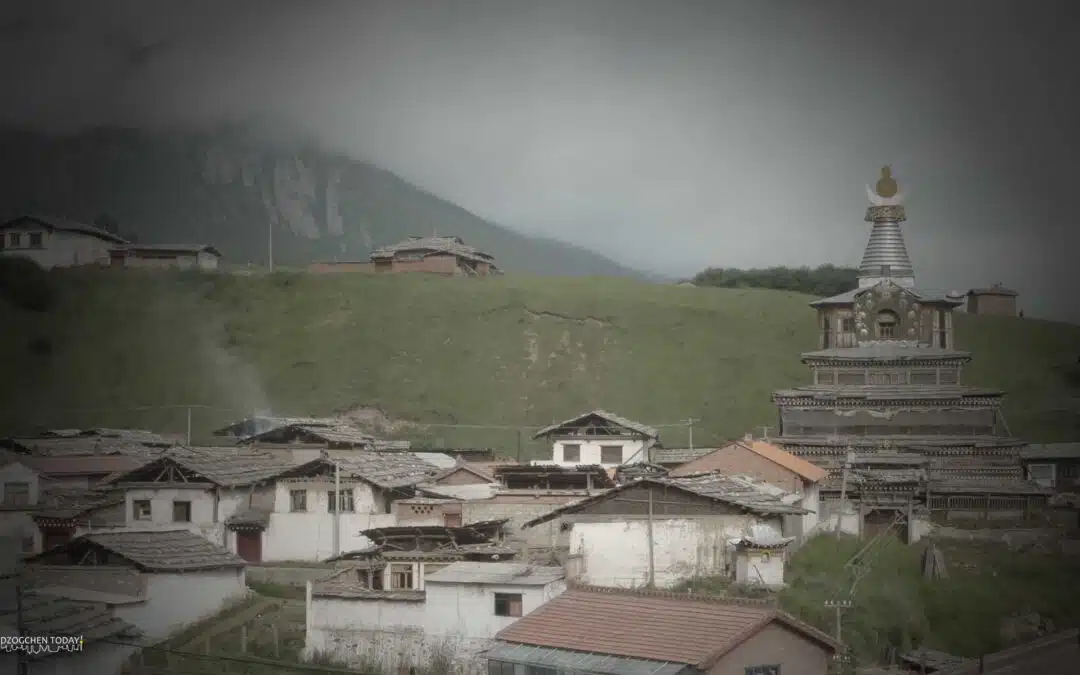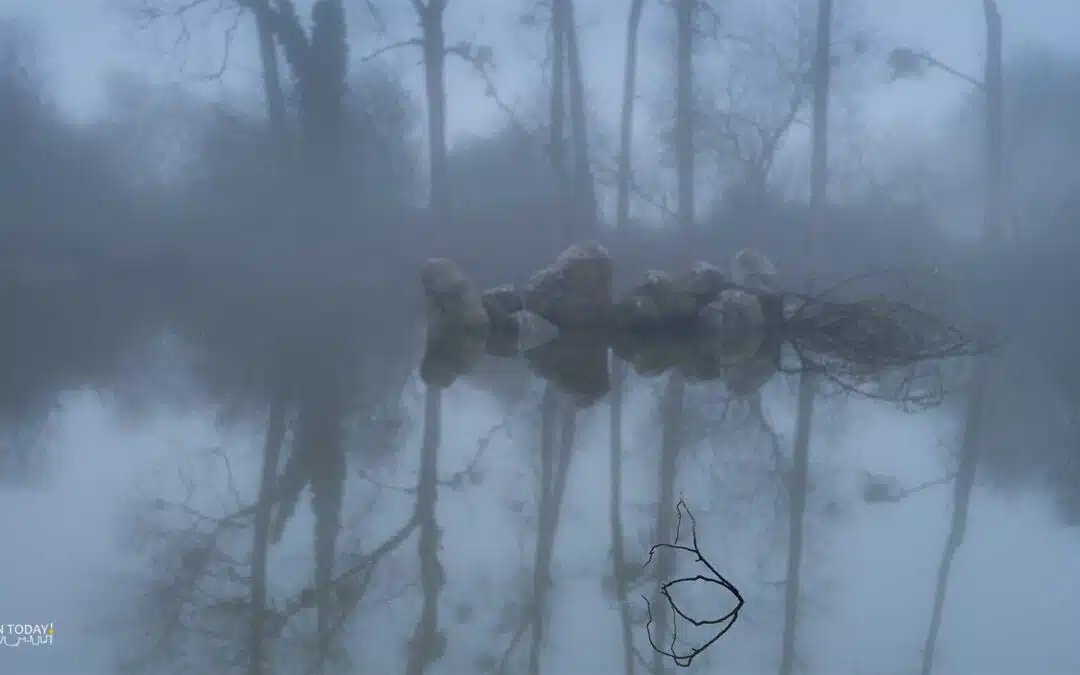
Blog | Culture and tradition
In “Away from the World”, Mila Khyentse talks (a bit) about the tradition of retreats in Dzogchen. Solitary retreats are really important in these traditions to deepen our knowledge.
A little talk about the tradition of retreats in Dzogchen
The Dzogchen tradition insists on the fact, from time to time and not necessarily for very long, to withdraw from the world in order to go deeper into the discovery of ourselves.
These are called solitary retreats and, whether in the mountains, in the countryside or by the sea, the most important thing is to be quiet and far from any human activity.
You will tell me: it is becoming difficult nowadays not to come across a single human being! It is totally true, but there are still such places all over the world, if you look hard enough…
Why go on a retreat?
The retreat allows us to cut with our habits of functioning, the routine of daily activities, which occupy us all the time and do not allow us to deepen our relationship to ourselves, to others and to the world. Even more important: drowned in endless activities, we have no chance to understand how our mind works, how it relates to our body and speech, and the pre-eminence it has in our whole existence.
“A good piece of advice, and in fact the only important one to apply when we go on retreat: don’t get attached to anything and avoid the disease of wanting to understand everything all the time.”
The silence that arises when we withdraw from the world is beneficial: it allows us to regain our breath, to let our thoughts go, to release the tensions and the pressure that we accumulate every day and thus to be able to perceive much further and deeper than what we usually perceive.
At the beginning…
When we make our first retreat, at the beginning it can be destabilizing because we are absolutely not used to being alone in front of ourselves, with no one or noises around us except those of nature. Often, the city dwellers that we are even feel a time of anxiety in front of this solitude. The best thing then is to relax by going for a walk or taking a book, to have a “light” activity that will allow us to accept the transition from “frenetic everything” to “anxious nothing”. Then, in a few days, often three or four, we start to really settle down, and that’s when we really begin our retreat.
During the retreat
It is then important, when the retreat has really begun, to have a regular program that will give rhythm to the days and nights and allow us to have a structure on which to lean. This structure is important because it orients us, guides us, as the days go by, towards a deeper and deeper insight. This regularity in the retreat is essential because it gradually allows us to direct our gaze more and more inward while keeping a habit of life so as not to sink into stagnant states.
During these retreats, we practice meditation of course… but not only. Physical exercises are also important because it prevents us from atrophying by sitting in the same position for too long.
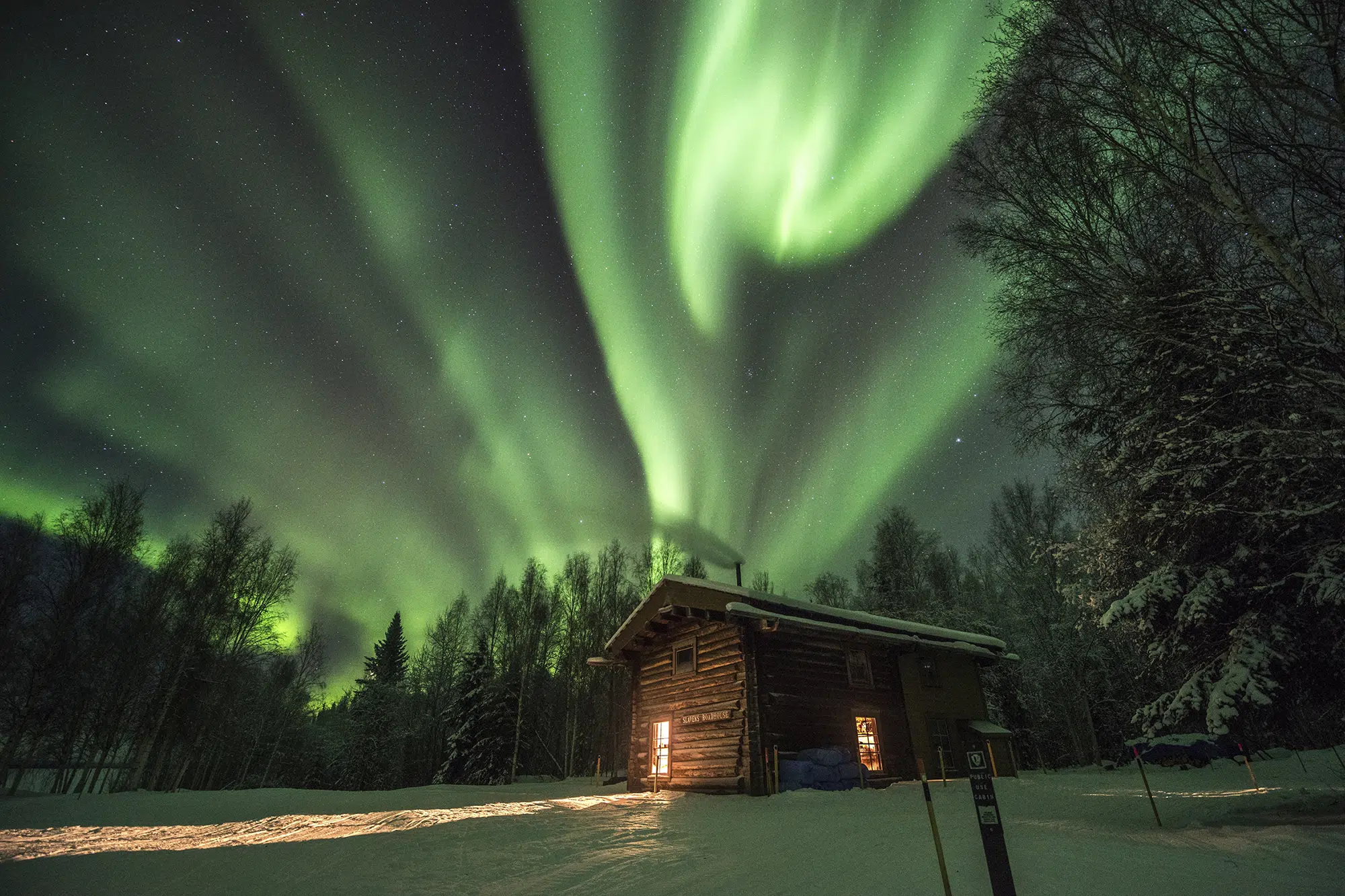
Whatever form of practice we have, it is essential to receive instructions from our teacher or master before starting to avoid doing something too disorganized or simply taking a few days off to the sea, the mountains or the countryside…
You can of course bring your favorite cuddly toy as well as other objects, photos, etc. that you care about and bring a certain number of books related to the retreat you are doing to continue learning and to confront your experience with the wisdom of all those who have done their retreats before you.
It is really interesting to observe the great wealth of experiences that we have during these privileged moments. These are often essential experiences that mark us forever.
A good piece of advice, and in fact the only important one to apply when we go on retreat: don’t get attached to anything and avoid the disease of wanting to understand everything all the time.
During these precious moments, as has already been said, our apprehension of reality and our perception of things deepens and becomes more refined. Sometimes to such a degree that we completely miss the experience we have. The best thing to do then is to say to ourselves, “Okay, I can’t understand this right now. I’ll put it aside for now, write it down, and talk to my teacher after the retreat, or I’ll figure it out someday, when I have enough experience and integration.
If we can apply this basic rule, we can fully enjoy our retreat instead of spending our time trying to understand what cannot be understood…
How to leave?
And yes, it may seem counterintuitive, but you need to prepare for the exit as much as you do for the beginning of the retreat. It is good to start thinking about the return, perhaps three days before the end of the retreat, to anticipate the return and the reappearance of the interactions. We can think again about the trip home, the discussions we will have with family and friends who will most likely ask us: “So, how did it go?”, the return to work, etc. This will allow us to land smoothly. Besides, the longer the time spent in retreat, the more important it is to do this. It will help us readjust to everyday life, which is very different from the one we have just lived.
The more we get used to doing this type of retreat, the less we will need to get used to everyday life again.
The benefits
There are many benefits and they are often long-lasting, if the experience is renewed regularly. First of all, we come back with a different perception of the reality of our daily life. Events that we thought were extraordinary or catastrophic no longer impact us as much as before. Office colleagues or friends who used to make our lives miserable no longer really affect us. We have taken a lot of distance from things while being much more present to what we are living. We are also spinning slower in the hamster wheel and taking more time for ourselves and what is really essential in our daily lives. We also notice that we breathe better, and many people around us notice that our simple presence makes them feel better.
And this is just the beginning…
The Dzogchen tradition really insists on regular retreats out of the world, there must be good reasons for that… It’s our turn to discover what they are.
Want to try?
Here is a wonderful place to make retreats in perfect conditions: https://www.lasauvete.org/
MORE POSTS
Being Your Own Master
Relationship with a master requires discernment. “Being your own master” offers insights into understanding devotion and avoiding pitfalls.
The Story of the First Masters: Manjushrimitra
We continue the Stories of the First Dzogchen Masters with Manjushrimitra, who structured the verses of Dzogchen into three series.
Be authentic!
In "Be Authentic!" Denis explores authenticity in the master-disciple relationship, a living space in which the nature of mind is recognized.
The First Day
In this article "The First Day", Mila Khyentse talks about the first day of the Tibetan year and what we usually do in a primordial way.
The Tibetan Transmission: the Transmission According to the Four Initiations of Vajrayana
The Tibetan transmission, according to the four initiations of Vajrayana, leads to the complete realization of the ultimate nature of all reality.
The ground of all Künshi
This article “The ground of all, Künshi” provide a better understanding of the essential words and concepts of Dzogchen.

